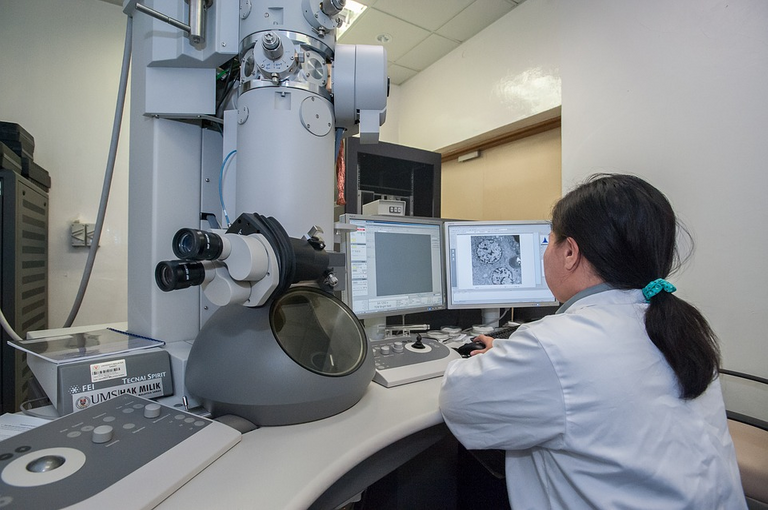Bacteria that eat plastic; Searching for a link between creativity and mental illness; A different kind of LiDAR; Taiwan ramping up it's AI work force; and more...
Business, News, Science, Technology, or whatever gets my attention.
Straight from my RSS feed:
Ten links and micro-summaries from my 1000+ daily headlines. I filter them so you don't have to.
- These bacteria eat plastic - In this TED talk, Morgan Vague enumerates some of the environmental risk that arises from plastics, because they can take 500-1000 years to break down. She then goes on to describe her discovery of plastic-eating bacteria that might help to reduce the environmental risk from continued plastic use. Having discovered a variant of bacteria that digests plastic, her new goal is to find ways to accelerate the process.
- Mad genius and genes: Are highly creative people more likely to suffer mental illness? - This topic has been under debate for some time. A recent study suggests that there may be a link, but critics say it suffers from methodological problems. Other studies find no links, so the debate continues. The article suggests that the question may be impossible to resolve until scientists come up with objective ways to quantify creativity and mental illness. h/t RealClear Science
- Two self-driving startups team up to build a different kind of lidar - Blackmore's FMCW works by splitting a laser beam into two parts, bouncing it off of objects, and then recombining it. Unlike traditional LiDAR, this method lets it use Dopler Shift to measure position and velocity at the same time. Automotive radar has been used to observe velocity, but FMCW offers superior granularity.
- Taiwan Will Train 10,000 AI Workers Per Year For Google, Microsoft And More To Meet Rising Demand - With Google, Microsoft, Qualcomm, Nvidia, and IBM all expanding into Taiwan, the country has a shortage in AI engineers. Worldwide, only 22,000 people are qualified to start AI projects, but to meet the demand, Taiwan plans to add 10,000 per year to that total by starting with a focus in elementary and middle schools. h/t Communications of the ACM
- SpaceX’s Starlink satellites are clearly visible in the sky—and astronomers aren’t happy - As covered in my May 25 Interesting Links Post, SpaceX recently launched 60 satellites that are intended to create a global mesh Internet access network. The low earth orbit (LEO) satellites are only visible at dawn and dusk, but their solar panels are brighter than expected. Sixty satellites have been launched, and 12,000 are eventually expected, so astronomers worry that they'll overpower natural star light. Elon Musk says that affordable global Internet for the world's economically disadvantaged outweighs any harm, and adds that his engineers are looking for ways to reduce the reflectivity. Here is a video of the satellites that was captured by Marco Langbroek during the launch.
- Two weeks after Microsoft warned of Windows RDP worms, a million internet-facing boxes still vulnerable - CVE-2019-0708, AKA BlueKeep, lets a remote attacker execute code and install malware without authenticating as a user. This makes it a "wormable" security hole. Anyone who hasn't patched against this vulnerability is advised to do so.
- The Case for Collaborative Care - In the collaborative care model, a group of specialists cooperate in the care of the patient, comparing notes and holding each other accountable. This might include a general practitioner, a behavioral health specialist, and a variety of other specialists. The article says that this model produces better physical and behavioral health results, incorporates the patient's values and preferences into treatment protocols, and produces financial benefits by reducing lost productivity due to causes like depression, which has a $44 billion annual cost to employers.
- How the cell phone helped reduce drug-related gang deaths - The growth of cell phone usage in America corresponds with decline in murder rates. Researchers suggest that this is because it reduced the need for drug gangs to conduct their business in the streets, which reduced the ability of cartels to use violence to control the black-market industry.
- STEEM We Are All Born Scientists And It's Vital To Preserve That - @sauravrungta writes about the importance of the natural curiosity that occurs in children, observing that intelligence and curiosity have allowed humans to obtain a deeper understanding of reality than other animals. The post also opines that too many education systems focus on teaching what to think, instead of how to think, and that educators should give more thought to preserving and nurturing that innate curiosity. (5% of this post's rewards will go to @sauravrungta)
- STEEM The Wim Hof Diaries . . . Translating The Study To Plain Speak - In this post, @cryptogee describes the extract of a study on the Wim Hof method of mindfulness. The study compared an intervention group that was trained in the method with a control group that was not, and found that the intervention group developed more antibodies and experienced less symptoms from exposure to a mild toxin. One item of potential note is that there was apparently no placebo group. (@cryptogee will receive 5% of the rewards from this post.)
### About this series
Note: Sharing a link does not imply endorsement or agreement, and I receive no incentives for sharing from any of the content producers.
Thanks to SteemRSS from @philipkoon, @doriitamar, and @torrey.blog for the Steem RSS feeds!
In order to help make Steem the go to place for timely information on diverse topics, I invite you to discuss any of these links in the comments, and/or your own response post.
If you are not on Steem yet, you can follow through RSS: remlaps, remlaps-lite.
